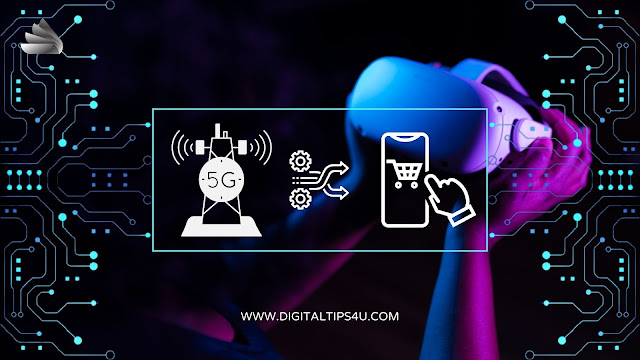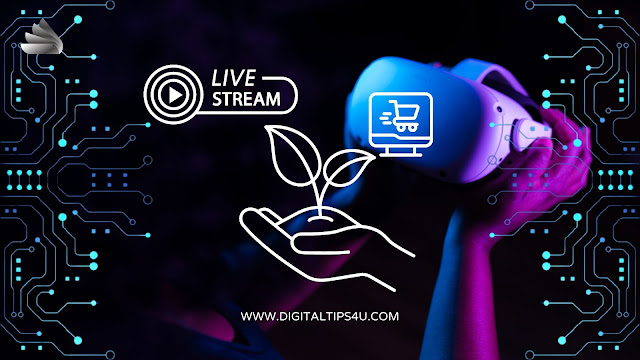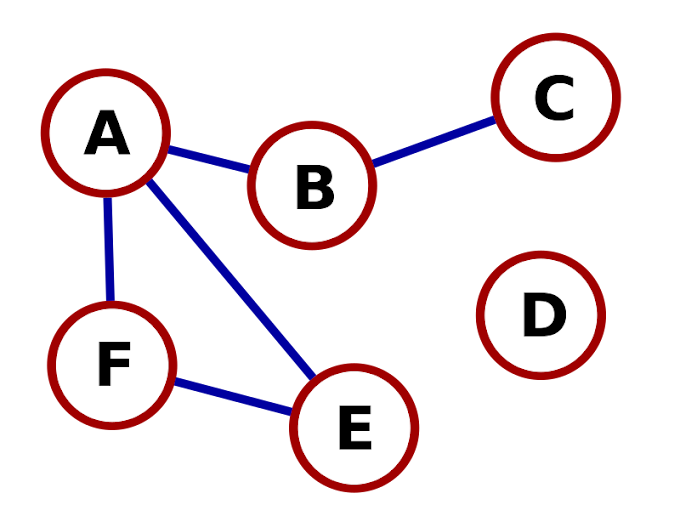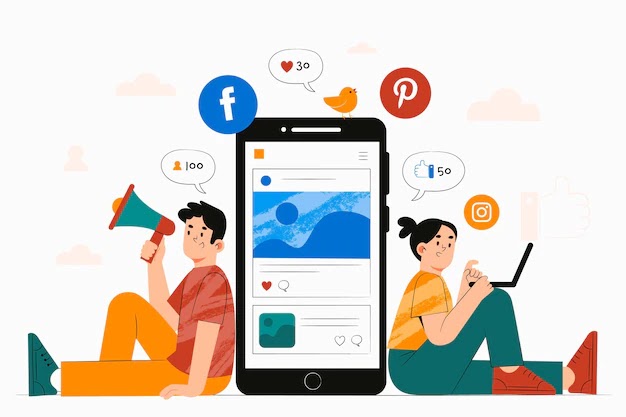With the rise of e-commerce in recent years, online shopping has become a staple in how consumers purchase. But with the advent of 5G technology, the online shopping experience is set to be transformed like never before.
The emergence of 5G technology can transform how we shop online, making e-commerce faster, more efficient, and more personalized than ever before. With data transfer speeds up to 20 times faster than 4G, 5G technology promises to revolutionize the online shopping experience.
So, what exactly is 5G technology? 5G, or fifth-generation mobile networks, is the latest generation of wireless mobile technology designed to offer faster and more reliable connectivity. With 5G, users can enjoy faster download and upload speeds, lower latency, and better network reliability. Users can browse online stores, stream high-quality videos, and purchase with minimal lag or buffering.

How 5G Technology is Transforming the Online Shopping Experience
With the rise of e-commerce in recent years, online shopping has become a staple in how consumers purchase. But with the advent of 5G technology, the online shopping experience is set to be transformed like never before.
5G technology is the latest generation of mobile network technology, offering faster and more reliable connections than previous generations. It offers data transfer speeds up to 20 times faster than 4G, making it possible for users to download large files, high-quality stream video, and browse the internet faster. But how exactly is this technology changing the online shopping experience?
Improved connectivity
One of the biggest benefits of 5G technology is its improved connectivity. With faster and more reliable connections, users can browse online stores quickly, compare prices, and make purchases with minimal lag time means that users are less likely to experience buffering, delays, or dropped connections, which can be frustrating when shopping online.
Virtual and augmented reality
Another way 5G technology transforms the online shopping experience is through virtual and augmented reality. With faster connections and more powerful mobile devices, retailers can now offer immersive shopping experiences that allow users to see and interact with products in a more realistic way means that users can try on clothes virtually, view furniture in their homes using augmented reality, or see how the makeup looks on their faces before purchasing.
Personalization
Personalization is another area where 5G technology is making a big impact. With faster connections and more powerful data processing capabilities, retailers can now collect and analyze vast amounts of user behaviour and preferences data, offering more personalized recommendations, tailored promotions, and targeted advertising that is more likely to appeal to individual users.
Faster and more efficient delivery
Finally, 5G technology is also transforming the delivery process for online purchases. With faster and more reliable connections, retailers can now use real-time tracking and monitoring systems to keep track of their inventory, delivery vehicles, and delivery personnel means they can offer faster and more efficient delivery services, which is especially important for time-sensitive purchases or users who need their items delivered quickly.
The Potential Impact of 5G Technology on E-commerce Logistics and Delivery
The emergence of 5G technology could revolutionize the logistics and delivery aspect of e-commerce. With faster and more reliable connections, 5G technology offers several benefits that could significantly improve e-commerce logistics and delivery efficiency and speed.
One of the most significant impacts of 5G on e-commerce logistics and delivery is the ability to offer real-time tracking and monitoring. With 5G, retailers can use real-time tracking and monitoring systems to keep track of their inventory, delivery vehicles, and delivery personnel means that they can offer more accurate delivery estimates and provide customers with real-time updates on the status of their deliveries, particularly important for time-sensitive purchases or users needing their items delivered quickly.
Another benefit of 5G technology is the ability to improve the efficiency of the delivery process. With faster and more reliable connections, delivery vehicles can use real-time traffic and weather data to optimize their routes and avoid delays means that deliveries can be made more quickly and efficiently, essential for meeting customer expectations and maintaining a competitive edge in the e-commerce market.
In addition to real-time tracking, monitoring, and improved delivery efficiency, 5G technology can enhance the customer experience. With faster and more reliable connections, retailers can offer more flexible delivery options, such as same-day delivery or delivery within specific time slots means that customers can choose delivery options that best meet their needs and preferences, which can improve overall customer satisfaction and loyalty.
Finally, 5G technology also offers the potential to improve the sustainability of e-commerce logistics and delivery. With more efficient delivery routes and real-time monitoring, retailers can reduce their carbon footprint by minimizing fuel consumption, and emissions are becoming increasingly important for retailers and consumers looking to reduce their environmental impact.
Also read : Role of AI in Digital Marketing
The Role of Augmented Reality and Virtual Reality in 5G-Powered E-commerce

The emergence of 5G technology is set to transform the world of e-commerce, and one of the most exciting developments is the potential for augmented reality (AR) and virtual reality (VR) to enhance the online shopping experience. With faster and more reliable connections, 5G technology offers several benefits that could significantly improve the effectiveness and popularity of AR and VR in e-commerce.
Some retailers already use augmented and virtual reality to offer immersive shopping experiences, such as virtual try-on of clothing or furniture visualization. However, the experience can be limited by slower data transfer speeds and latency. With 5G technology, AR and VR can be powered more seamlessly, allowing for more realistic and immersive experiences.
One of the key benefits of AR and VR in e-commerce is the ability to provide customers with a more engaging and interactive shopping experience. With AR, customers can see how a product looks in real-world environments or try on clothes or makeup without physically being present in a store. With VR, customers can explore a virtual store or showroom and feel in the physical space.
Another benefit of AR and VR in e-commerce is the potential to improve product visualization and customization. With AR, customers can see products in 3D and visualize how they will fit and look in their real-world environment. With VR, customers can customize products in real-time, such as choosing colours, patterns, and other options, and see the results immediately.
AR and VR also offer the potential to reduce product returns and increase customer satisfaction. Providing customers with a more realistic and accurate view of products makes them more likely to be satisfied with their purchase and less likely to return it can reduce costs for retailers and improve customer loyalty.
Finally, AR and VR in e-commerce also potentially increase sales. By providing customers with an immersive and interactive shopping experience, retailers can engage with customers meaningfully and create more memorable experiences that increase brand loyalty, repeat purchases, and higher overall sales.
Personalization and Customization in 5G-Powered E-commerce
One of the most significant benefits of 5G-powered e-commerce is the potential for increased personalization and customization. With faster and more reliable connections, 5G technology offers several benefits that could significantly improve the ability of retailers to personalize and customize the online shopping experience for their customers.
Personalization and customization are important aspects of e-commerce, as retailers seek to differentiate themselves from their competitors and provide customers with more tailored experiences. However, current technologies often need to be improved regarding the speed and accuracy of data transfer and the ability to process large amounts of data. With 5G technology, these limitations can be overcome, allowing for more advanced and effective personalization and customization.
One of the key benefits of 5G-powered personalization and customization is the ability to offer more relevant and targeted product recommendations. With faster and more reliable connections, retailers can quickly process data and use machine learning algorithms to analyze customer data in real-time. Retailers can offer personalized product recommendations that are more accurate and relevant to customers' interests and preferences.
Another benefit of 5G-powered personalization and customization is the ability to offer more customized products and services. With faster and more reliable connections, retailers can offer more advanced customization options, such as personalized clothing or custom-built electronics. Customers can have products tailored to their specifications, improving overall satisfaction and loyalty.
In addition to product recommendations and customization, 5G-powered personalization and customization can improve the online shopping experience. With faster and more reliable connections, retailers can offer more personalized and interactive experiences, such as landing pages, chatbots, and virtual assistants can create a more engaging and immersive customer shopping experience, increasing satisfaction and loyalty.
Finally, 5G-powered personalization and customization also offer the potential to improve the efficiency and effectiveness of marketing and advertising efforts. With faster and more reliable connections, retailers can use real-time data to optimize their digital marketing strategies and campaigns and target customers with more relevant and personalized messages can improve marketing efforts' effectiveness and increase sales and revenue.
The Growth of Social Commerce and Live Streaming in a 5G World

Social commerce and live streaming have become increasingly popular in recent years, and the rise of 5G technology is expected to accelerate their growth further. With faster and more reliable connections, 5G technology offers several benefits that could significantly improve the ability of retailers to leverage social commerce and live streaming to drive sales and engagement.
Social commerce is using social media platforms to sell products and services. With the growth of social media platforms such as Instagram and Facebook, social commerce has become a popular way for retailers to reach new customers and drive sales. However, current technologies often need to be improved in terms of the speed and reliability of data transfer, which can limit the effectiveness of social commerce efforts. With 5G technology, these limitations can be overcome, allowing for more advanced and effective social commerce strategies.
One of the key benefits of 5G-powered social commerce is the ability to offer more immersive and interactive experiences. With faster and more reliable connections, retailers can use live video and augmented reality to create more engaging and interactive social commerce experiences, including virtual try-on experiences for clothing and beauty products or 360-degree views of products for online shopping.
Live streaming is another area where 5G technology is expected to significant impact. Live streaming has become increasingly popular recently, with platforms such as Twitch and YouTube attracting large audiences. With 5G technology, live streaming can be taken to the next level, offering higher-quality video and audio and more immersive experiences for viewers can be particularly beneficial for retailers, who can use live streaming to showcase their products and engage with their customers in real-time.
One of the key benefits of live streaming in a 5G world is the ability to reach larger audiences. With faster and more reliable connections, live streaming can be broadcast to more people in higher quality, allowing retailers to reach new customers and build brand awareness. In addition, live streaming can provide more personalized and engaging customer experiences, such as live product demos and Q&A sessions.
Finally, 5G-powered social commerce and live streaming also improve the overall online shopping experience. With faster and more reliable connections, retailers can offer more personalized and interactive experiences, such as landing pages, chatbots, and virtual assistants, to create a more engaging and immersive customer shopping experience, increasing satisfaction and loyalty.
The Challenges and Opportunities of Implementing 5G Technology in E-commerce
Implementing 5G technology in e-commerce offers significant opportunities for retailers to improve their operations and customer experience. However, several challenges must be addressed to leverage the benefits of 5G technology fully.
One of the main challenges of implementing 5G technology in e-commerce is the significant infrastructure investment required. 5G networks require many small cell towers, which can be expensive to install and maintain. In addition, many retailers will need to upgrade their technology infrastructure to support 5G connectivity, including upgrading servers, software, and other systems to ensure they are compatible with 5G technology.
Another challenge is the need to develop new applications and technologies that can fully leverage the benefits of 5G connectivity. Includes developing new augmented and virtual reality applications and creating more personalized and interactive e-commerce experiences that can take advantage of 5G's high speed and low latency.
Despite these challenges, retailers have significant opportunities to leverage 5G technology in e-commerce. One of the key benefits is the ability to offer customers more immersive and personalized experiences. With 5G connectivity, retailers can create more interactive product demos and virtual try-on experiences and offer personalized recommendations based on customer data.
In addition, 5G technology offers significant benefits for e-commerce logistics and delivery. With faster and more reliable connections, retailers can improve their supply chain operations, including real-time inventory management, and more efficient delivery routes can lead to faster and more reliable delivery times, improving customer satisfaction and loyalty.
Another opportunity is leveraging 5G technology to create new revenue streams. For example, retailers can use 5G connectivity to offer new services such as real-time product tracking and delivery notifications, which can be monetized through subscription fees or other revenue models.
Finally, 5G technology offers significant opportunities for retailers to expand their global reach. With faster and more reliable connections, retailers can more easily reach customers in remote or under-served areas, opening up new markets and revenue opportunities.
The importance of investing in infrastructure and technology for the future of e-commerce
The world of e-commerce is evolving rapidly, and investing in infrastructure and technology is essential for the future success of businesses operating in this space. As more and more consumers turn to online shopping, retailers must keep up with their demands and provide them with a seamless and personalized experience.
One of the key areas where investment is necessary is the development of advanced technology systems that can support the growing demands of e-commerce, upgrading server infrastructure, investing in advanced analytics tools, and improving a website and mobile app user interfaces. By investing in these technologies, retailers can ensure that their platforms are fast, responsive, and easy to use, which can help to increase customer satisfaction and loyalty.
Another important area for investment is in the development of supply chain infrastructure. E-commerce businesses must manage large volumes of orders and shipments, and investing in the right logistics and distribution systems can help ensure that this process is as efficient and cost-effective as possible; it includes investing in warehouses and distribution centres and developing partnerships with logistics providers to ensure fast and reliable shipping to customers.
In addition to these areas, investing in cybersecurity is also crucial for e-commerce businesses. As online transactions become more common, the risk of cyber-attacks and data breaches increases. Investing in advanced cybersecurity measures can help to protect customer data and ensure that transactions are secure.
Finally, investing in technology and infrastructure is essential for e-commerce businesses looking to expand their global reach. With the right technology and infrastructure, businesses can more easily reach customers in remote or under-served areas, opening up new markets and revenue opportunities.
Imp Topics: How to Design Email Marketing Campaign
The Role of Data Analytics in 5G-Powered E-commerce

The rise of 5G technology is transforming the world of e-commerce in many ways. One of the most important is data analytics's role in this new era of online shopping. With 5G networks providing faster and more reliable connectivity, e-commerce businesses now have access to more data than ever presents a significant opportunity to use advanced analytics tools to gain deeper insights into customer behaviour, preferences, and trends.
Data analytics is already important in e-commerce, allowing businesses to understand their customers better and improve their shopping experiences. With 5G technology, this role is set to become even more important. For example, faster data speeds and lower latency can enable e-commerce businesses to collect and analyze large amounts of data in real-time, allowing them to make faster and more informed decisions about their products, pricing, and marketing strategies.
One of the key benefits of data analytics in 5G-powered e-commerce is the ability to personalize the shopping experience. By analyzing customer data, businesses can gain insights into their preferences and purchase history, allowing them to offer personalized recommendations and promotions help to increase customer loyalty and drive repeat purchases.
In addition to personalization, data analytics can also be used to optimize supply chain and logistics operations. With real-time data on inventory levels, shipping times, and delivery routes, e-commerce businesses can make faster and more informed decisions about their logistics operations, reduce costs, improve efficiency, and enhance customer experience.
Another important application of data analytics in 5G-powered e-commerce is fraud detection and prevention. With the increasing volume of online transactions, the risk of fraudulent activity is also rising. Advanced analytics tools can help to identify fraudulent transactions in real time, allowing e-commerce businesses to take immediate action to prevent losses.
Security and Privacy Considerations in 5G-Powered E-commerce
The rise of 5G technology is transforming the world of e-commerce, enabling faster connectivity and more seamless online experiences. However, with this increased connectivity comes new security and privacy considerations that e-commerce businesses must address to ensure their customers' personal and financial data remains secure.
One of the primary security risks in 5G-powered e-commerce is the potential for data breaches. With more data being transmitted over faster networks, the risk of unauthorized access to sensitive customer data is higher than ever. E-commerce businesses must implement robust security protocols, such as multi-factor authentication, encryption, and firewalls, to protect against data breaches and cyber-attacks.
Another security consideration in 5G-powered e-commerce is the increased use of mobile devices for online shopping. With more people using their smartphones and tablets to make purchases, e-commerce businesses must ensure their mobile apps and websites are secure and protected against hacking attempts, including implementing secure payment gateways and regularly updating software and security protocols.
Privacy is also a major concern in 5G-powered e-commerce. With the increased use of data analytics to personalize the shopping experience, e-commerce businesses must ensure that they are collecting, storing, and using customer data transparently and ethically which have explicit consent for data collection and use, implementing strong data protection policies, and regularly auditing and reviewing data practices to ensure compliance with regulations such as GDPR and CCPA.
In addition to these technical considerations, e-commerce businesses must prioritize employee training and awareness regarding security and privacy by educating employees on the risks of data breaches and cyber-attacks and providing ongoing training on best practices for protecting customer data and ensuring compliance with regulations.
Conclusion
The advent of 5G technology is set to revolutionize the world of e-commerce and online shopping in previously unimaginable ways. The faster, more reliable connectivity of 5G networks will enable e-commerce businesses to deliver customers more personalized, immersive, and engaging shopping experiences, from augmented and virtual reality-powered product displays to real-time social commerce and live streaming.
However, realizing the full potential of 5G technology in e-commerce will require significant investments in infrastructure, technology, security, and a commitment to innovation and experimentation. E-commerce businesses that embrace 5G technology and its opportunities will be well-positioned to stay ahead of the competition, attract new customers, and drive growth in the years ahead.
In short, 5G technology is not just the future of e-commerce and online shopping but a critical enabler of innovation, growth, and progress in the digital economy. By embracing this new era of connectivity and investing in the tools and technologies needed to thrive in it, e-commerce businesses can build a better, more engaging, and more profitable future for themselves and their customers.





0 Comments